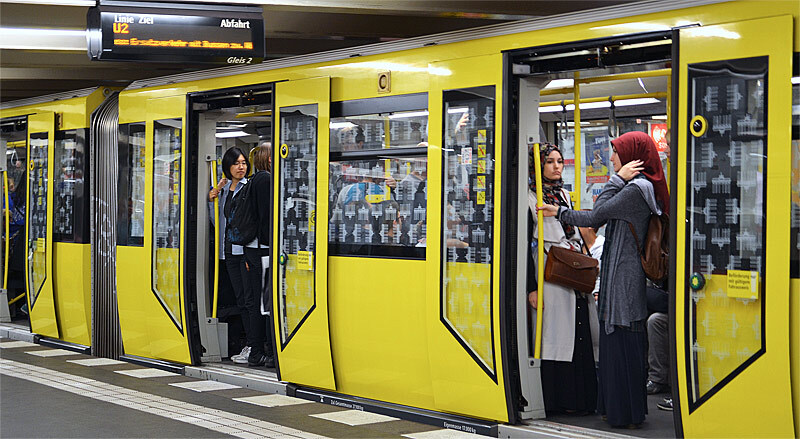Germany plans to introduce a discounted public transportation ticket next year in order to encourage people to drive less. Also, it will help the country meet its emissions targets.
Berlin aims to achieve climate neutrality by 2045. The plan is to reduce its emissions by 65% by 2030 compared to 1990. The country has achieved an overall reduction of around 40% thus far. But the problem is that the transportation sector is lagging behind. Its 2021 emissions were only 9.4% lower than in 1990.
Germany’s efforts to reduce emissions will be scrutinized at the COP27 global climate talks, which begin this weekend in Egypt.
For 49 euros per month, all public transportations are available
The new “Deutschlandticket,” unveiled this week, costs 49 euros per month and includes unlimited travel in Germany on local public transportation. It includes buses and commuter trains too. It is also one of the measures implemented by the city of Berlin to help people with rising living costs.
Germany’s transport companies association estimates that a more heavily discounted 9-euro per month nationwide ticket valid only for the past summer prevented 1.8 billion tonnes of CO2 emissions. But, unfortunately, it replaced only about 10% of car journeys.
After failing to meet its target last year, Germany’s transport ministry was forced to devise an emergency plan to reduce emissions.
Public transportation cannot be changed overnight
According to the transport ministry, reforming the transportation sector is more difficult than reforming other sectors of the economy. The reason for that is that it affects people’s everyday lives and cannot be changed overnight.
According to a spokesperson for the transport ministry, Germany must make progress in all areas of climate protection, but mobility is a fundamental right.
Vehicles in Germany – a country well known for its automakers – have become more efficient. On contrary, the transportation sector has made little progress in reducing emissions. The main reason is that today there are more trucks on the roads than two decades ago.
According to data from Germany’s Federal Environment Agency, freight transport road emissions are now 17% higher than in 1995.
Speeding limitation will reduce CO2 emissions
Environmentalists argue that Germany should impose a nationwide speed limit on highways. They say the country should eliminate tax breaks for company cars, and phase out combustion engine vehicles by 2025.
Greenpeace transport expert Marissa Reiserer told the media that a reform of the road traffic law is a necessity. She says that cars are still a heavily preferred transportation option in the country at the moment.
According to data published by the Federal Environment Agency last year, a speed limit of 120 kilometers per hour on German highways where there are no speed limits could reduce total CO2 emissions from passenger cars and light commercial vehicles by around 2.6 million tonnes per year.
Due to opposition from the liberal FDP party, Germany’s ruling coalition has been unable to agree on such a speed limit.
Of course, the speed limit is not the only solution, but it is a measure easy to implement overnight. It will allow the sector to focus on the big issues, says Greenpeace transport expert Reiserer.

